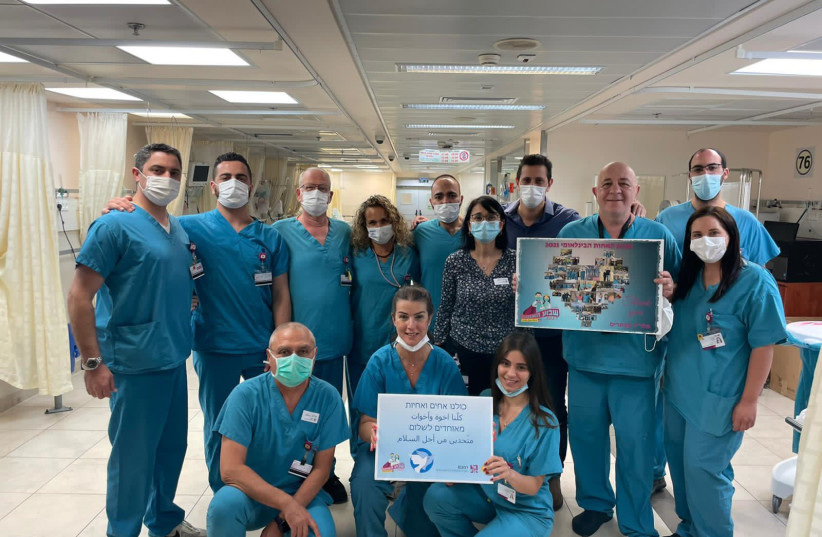The history of medicine and the Jewish people have long been intertwined. In medieval times, when antisemitism excluded Jews from most guilds and professions, the high literacy rate among Jews – who always prioritized education – made the few medical texts that existed at that time more accessible and understandable to them than to their less-literate non-Jewish neighbors.
Jews became physicians because it was a practical vocation. It enabled you to overcome otherwise impregnable social barriers, as even popes and kings would put aside their mistrust of Jews when they were in pain. But there were also deeper, cultural, reasons why Jews were drawn to medicine. Judaism regards life as sacred – “anyone who loses a soul, is as if he had lost an entire world; and anyone who sustains a soul is as if they have saved a whole world” says the Mishna.
This made healing the sick a respectable profession among Jews at a time when surgeons were held in no higher regard than barbers in broader non-Jewish society. As Jews became physicians, they inevitably came into more contact and established more connections with non-Jewish society.
In the 19th century, as the spread of humanistic values and scientific knowledge made surgery a more respectable occupation, Jews were excluded from the best schools, even in America – the land of opportunity. In response, the Jewish community established universities like Brandeis University and Yeshiva University. Similarly, as Jews were denied employment at general hospitals, New York’s Mount Sinai Hospital and Boston’s Beth Israel Hospital were established.
These hospitals were not intended to only care for Jewish patients, they were established so as to enable Jewish professionals to find employment, alongside non-Jews, while caring for all who were in need. These hospitals grew to be among the best in the world and few people now remember the origins of their founding. Over time, Jews, some as respected physicians, gradually integrated into the upper echelons of society, interacted with members of other faiths and became, in many places, part of the elite rather than the outcasts.

In modern times, we have seen the Jewish immigration experience holding true for other immigrant communities, as well. Every Jewish mother wants a doctor for a son, goes the joke. In truth, it is every parent’s wish that their children have better opportunities than they had and medicine is a good choice for many of them.
Like Jews in the Diaspora, Arabs in Israel flock to work in healthcare
IT IS thus interesting and unsurprising to note this same pattern also exists in the healthcare workforce in Israel today. Arab citizens of Israel, being a minority community, are, alas, regarded with suspicion by the majority and frequently regarded as outsiders. They naturally wish to break through the social barriers they constantly encounter.
And just like the Jews of the past, many young people are finding that healthcare is not only an honorable and interesting employment opportunity but also a field that holds the promise of rapid professional, social and economic growth. Thus, an interesting situation has emerged in which the medical aspirations of the Jews of the Diaspora-of-old now resonate in the young Arab citizens of Israel today.
Today, as almost all schools in Israel are segregated, most neighborhoods are separate and most cultural venues are split by tradition and language, there are few places for Arabs and Jews to work side-by-side and spend meaningful time together. Healthcare is perhaps the one and only truly egalitarian occupational setting in Israel where you will find Jews and Arabs working together.
This unique success has prompted experts to try to gain insights from the Israeli healthcare sector that might be generalizable to broader Israeli society in an attempt to advance cooperation and multiculturalism here. It is no surprise, then, that the ascending political forces in Israel today, who oppose coexistence, tolerance and peace, fear this success and are targeting the healthcare system so as to undermine the basic concepts upon which its humanistic ideals are built. It is ironic that members of parties who base their agendas on Jewish values are blind to the way their actions mirror those of the worst Jew-haters.
At the same time, it is heartening that the Israel Medical Association, leaders of its hospitals and other healthcare professionals have publicly denounced National Missions Minister Orit Struck’s recent remarks legitimizing racist considerations in the provision of healthcare and have vouched to preserve the spirit of coexistence and cooperation that currently characterizes the Israeli healthcare system.
So, today, on this Physicians Day, I call on health workers of all backgrounds, Jews and Arabs, religious and secular, of all genders and persuasions, to maintain belief in our common goal for a better future and to remember the strength of our mission, which is to heal, relieve pain, and make life better for our patients and ourselves.
The writer is the director-general of ALYN Hospital Pediatric Rehabilitation Center.
